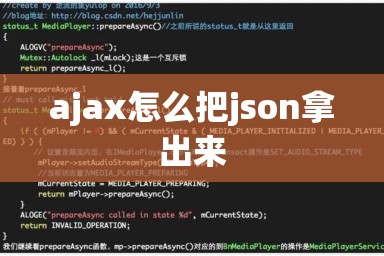实际项目中,读取相关的系统配置文件是很常见的事情。
1. json使用
JSON 应该比较熟悉,它是一种轻量级的数据交换格式。层次结构简洁清晰 ,易于阅读和编写,同时也易于机器解析和生成。
1. 创建 conf.json:
{
"enabled": true,
"path": "/usr/local"
}
2. 新建main.go:
package main
import (
"encoding/json"
"fmt"
"os"
)
type configuration struct {
Enabled bool
Path string
}
func main() {
// 打开文件
file, _ := os.Open("conf.json")
// 关闭文件
defer file.Close()
//NewDecoder创建一个从file读取并解码json对象的*Decoder,解码器有自己的缓冲,并可能超前读取部分json数据。
decoder := json.NewDecoder(file)
conf := configuration{}
//Decode从输入流读取下一个json编码值并保存在v指向的值里
err := decoder.Decode(&conf)
if err != nil {
fmt.Println("Error:", err)
}
fmt.Println("path:" + conf.Path)
}
2. ini的使用
INI文件格式是某些平台或软件上的配置文件的非正式标准,由节(section)和键(key)构成,比较常用于微软Windows操作系统中,这种配置文件的文件扩展名为INI。
1、创建 conf.ini:
[Section] enabled = false path = /usr/local #comment
2、新建main.go:
package main
import (
"fmt"
gcfg "gopkg.in/gcfg.v1"
)
func main() {
config := struct {
Section struct {
Enabled bool
Path string
}
}{}
err := gcfg.ReadFileInto(&config, "conf.ini")
if err != nil {
fmt.Println("Failed to parse config file: %s", err)
}
fmt.Println(config.Section.Enabled)
fmt.Println(config.Section.Path)
}
3. yaml使用
yaml 可能比较陌生一点,但是最近却越来越流行。也就是一种标记语言。层次结构也特别简洁清晰 ,易于阅读和编写,同时也易于机器解析和生成。
1. 创建 conf.yaml:
enabled: true path: /usr/local
2、新建main.go
package main
import (
"fmt"
"io/IoUtil"
"log"
"gopkg.in/yaml.v2"
)
type conf struct {
Enabled bool `yaml:"enabled"` //yaml:yaml格式 enabled:属性的为enabled
Path string `yaml:"path"`
}
func (c *conf) getConf() *conf {
yamlFile, err := IoUtil.ReadFile("conf.yaml")
if err != nil {
log.Printf("yamlFile.Get err #%v ", err)
}
err = yaml.Unmarshal(yamlFile, c)
if err != nil {
log.Fatalf("Unmarshal: %v", err)
}
return c
}
func main() {
var c conf
c.getConf()
fmt.Println("path:" + c.Path)
}






